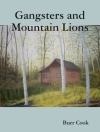In ‘The Phantoms of the Foot-Bridge, ‘ Mary Noailles Murfree deftly weaves a tapestry of Southern Appalachian life, rich with local color and vivid characters. This novella stands as a compelling exploration of the interplay between nature and the human psyche, characterized by her signature regional realism. Murfree’s prose demonstrates meticulous attention to the rhythms of mountain dialects and the haunting beauty of the landscape, creating a haunting atmosphere that lingers throughout the narrative. As the story unfolds, themes of isolation, superstition, and the supernatural emerge, revealing the complexities of human experience in a mystical, yet unforgiving, environment. Mary Noailles Murfree, often celebrated as one of the pioneers of regional literature, drew inspiration from her upbringing in the Appalachian region. Her keen observations of local lore, customs, and the people profoundly informed her writing. Murfree’s experiences as a female author in the late 19th century also lent her a unique perspective on society and gender, factors that influenced her portrayal of womanhood and resilience in her works. This novella is a must-read for enthusiasts of regional literature and those interested in the intersections of place, identity, and myth. Readers will find themselves immersed in the hauntingly beautiful prose that captures the essence of the Appalachian South, making it an enriching addition to the literary canon.
Over de auteur
Mary Noailles Murfree (1850-1922), an American fiction writer, carved a distinctive niche in the literary world under the pseudonym ‘Charles Egbert Craddock.’ Her rich prose predominantly explored the life and landscapes of the Tennessee mountains, often focusing on the Appalachian region. Murfree’s narrative technique is marked by close observation and a vivid portrayal of her setting. ‘The Phantoms of the Foot-Bridge’ is one poignant example within her repertoire, laying bare the superstitions and folklore that were rife among the mountain people she so intricately depicted. Throughout her writings, Murfree’s masterful use of dialect and deep empathy for her characters offered readers an immersive experience of rural American life during the post-bellum era. Her works are celebrated for both their ethnographic value and their storytelling prowess, contributing a unique voice to Southern American literature. Murfree’s legacy lies in her ability to translate the human condition set against the backdrop of a rapidly changing America while holding on to the cultural threads that defined the communities she brought to life in her works.












